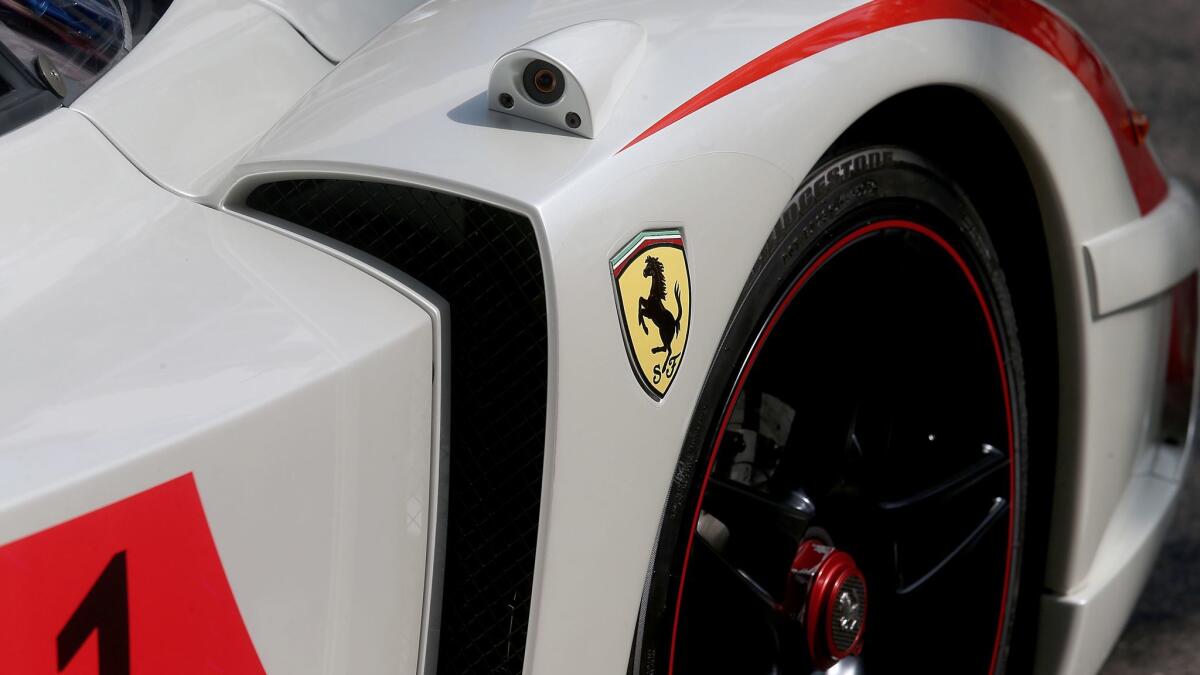Column: Study points to another advantage of the 1%: They’re great at evading taxes

In his story “The Snows of Kilimanjaro,” Ernest Hemingway wrote a snappy retort to F. Scott Fitzgerald’s line about how “the very rich are different from you and me.” Yes, Hemingway’s character replies, “they have more money.”
Economist Gabriel Zucman of UC Berkeley and two colleagues add a gloss to this exchange in a new paper. The very rich also are vastly better than you and me at evading taxes, they conclude — so much better that global statistics may understate the scale of wealth inequality by as much as 25%.
“Tax evasion is really concentrated at the top of the income distribution,” Zucman told me.
Offshore wealth turns out to be extremely concentrated. ... The top 0.01% owns about 50% of it.
— Zucman et. al., “Tax Evasion and Inequality”
That may seem intuitive — the richer one is, the larger the temptation to dodge the tax authorities — but it’s not the received wisdom among tax experts. They often point to the small business cash sector.
As described by Ilan Benshalom in a 2012 paper, these include “professionals providing services (e.g., electricians); restaurants; sole proprietors; farmers; and other small business owners.” These taxpayers find it easy to evade, the argument goes, because their cash income is hard to track and they’re so numerous and small-scale that they’re not economical to audit.
Estimates of the “tax gap” in many countries — that is, the discrepancy between what’s owed and what’s paid — typically are based on random audits. But that misses a large proportion of evaded taxes, Zucman and his co-authors argue, especially among the super-rich, who have unique options for evasion, chiefly by hiding money offshore.
“There’s a big industry providing wealth management services for the super-wealthy all over the world,” Zucman says. “Once you cross a certain threshold of over $50 million, you get offered those services.” The results of his study suggest that “wealth inequality is probably rising more than we thought.”
Zucman’s research is based on two spectacular leaks of information about those services: the 2007 leak of data on more than 30,000 clients of banking conglomerate HSBC’s Swiss private banking subsidiary, and the 2016 “Panama Papers” leak of names and addresses of owners of shell companies created by Panamanian firm Mossack Fonseca.
The leaks filled a gap that can confound national tax authorities, including those in the U.S. It’s relatively easy for enforcement agencies to obtain information from domestic financial institutions to match against taxpayer returns. But it’s harder, and sometimes impossible, to obtain the same information from offshore institutions. “If you move your wealth abroad,” Zucman says, “it’s very easy to evade taxes on that income.”
Zucman and his co-authors, from the University of Copenhagen and the Norwegian University of Life Sciences, matched the identities in both caches to tax records in Norway, Sweden and Denmark. Their goal was “to correct global inequality statistics … so as to better capture the very rich.”
Their basic finding was that about 3% of personal taxes are evaded overall in Scandinavia, but the figure rises to 30% among the top 0.01% of income earners. They don’t have similar figures for American taxpayers, but Zucman contends that the pattern in the U.S. probably resembles their sample.
“There is good reason to believe that the very steep gradient [in tax evasion by the wealthy] is also the case in the U.S.,” he says.
It could be even worse. For one thing, the tax gap is much larger in the U.S. than in Scandinavia. According to IRS statistics, less than 82% of all tax is paid voluntarily and on time; enforcement actions raise that ratio to about 83.7%, for a tax gap of 16.3%, or an annual average of $406 billion in unpaid taxes.
Evidence that Americans have taken advantage of the offshore services uncovered via the leaks — accounts of 4,000 taxpayers with U.S. connections, valued at $13 billion, turned up in the HSBC records — according to an analysis by “60 Minutes” in 2008.
Keep up to date with Michael Hiltzik. Follow @hiltzikm on Twitter, see his Facebook page, or email [email protected].
Return to Michael Hiltzik’s blog.
MORE FROM MICHAEL HILTZIK
In another sign of the end of nuclear power, shutdown looms for Three Mile Island
Have stocks reached ‘a permanently high plateau’? Or: Whatever happened to market corrections?
The challenges in setting up a California single-payer system are daunting — but not insurmountable
More to Read
Inside the business of entertainment
The Wide Shot brings you news, analysis and insights on everything from streaming wars to production — and what it all means for the future.
You may occasionally receive promotional content from the Los Angeles Times.











